Archpriest Sava Mihailidis is a Cypriot priest who has long been involved in protecting the rights of the unborn, rehabilitating victims of sexual exploitation, and pastoral work with the large Russian community on Cyprus.
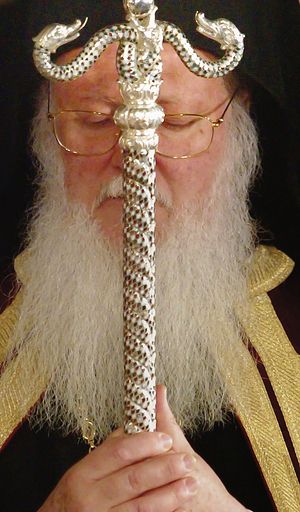 Patriarch Bartholomew of Constantinople granted “autocephaly” to those who until recently all Local Orthodox Churches considered to be Ukrainian schismatics. He did it through a series of actions. First, he appointed two Exarchs for Ukraine. Second, he arbitrarily restored the schismatics to their rank. Third, he annulled—after 300 years!—the decision of the Ecumenical Patriarchate on the transfer of the Kiev Metropolia to the Moscow Patriarchate, to restore to itself the title of Mother Church of Ukraine. Fourth, he organized the so-called unification council in Kiev to elect a new Metropolitan of Kiev, as if Vladyka Onuphry stopped being the canonical Metropolitan of Kiev. Of course, Patriarch Bartholomew invited the canonical autonomous Ukrainian Church, which is spiritually connected with the Moscow Patriarchate and includes the majority of Orthodox believers in Ukraine, to the unification council.
Patriarch Bartholomew of Constantinople granted “autocephaly” to those who until recently all Local Orthodox Churches considered to be Ukrainian schismatics. He did it through a series of actions. First, he appointed two Exarchs for Ukraine. Second, he arbitrarily restored the schismatics to their rank. Third, he annulled—after 300 years!—the decision of the Ecumenical Patriarchate on the transfer of the Kiev Metropolia to the Moscow Patriarchate, to restore to itself the title of Mother Church of Ukraine. Fourth, he organized the so-called unification council in Kiev to elect a new Metropolitan of Kiev, as if Vladyka Onuphry stopped being the canonical Metropolitan of Kiev. Of course, Patriarch Bartholomew invited the canonical autonomous Ukrainian Church, which is spiritually connected with the Moscow Patriarchate and includes the majority of Orthodox believers in Ukraine, to the unification council.
Probably the Patriarch was misled about the number of participants from among the Ukrainian bishops of the canonical Church in the unification council. Only two bishops of the canonical Church went to the council, which thus turned out to be only a parody of a council. It was led by Metropolitan Emmanuel of Gaul of the Ecumenical Patriarchate. Paradoxically, President Petro Poroshenko of Ukraine, who played a decisive role in the provision of “autocephaly” to the new church, also found himself in the presidium. This was followed by the final act of the drama, that is, the granting of the tomos of autocephaly by Patriarch Bartholomew.
A tragicomic situation. Many do not seem to understand that the “autocephalous” church of Ukraine, which, according to the tomos, is called the Orthodox Church of Ukraine (OCU),1 is less independent than the canonical autonomous Ukrainian Orthodox Church (UOC). The latter is only spiritually dependent upon the Moscow Patriarchate; it is autonomous in its internal affairs, while the former, by the grace of certain regulations of the Phanar tomos, is dependent upon the “Mother Church,” the Patriarchate of Constantinople, in serious matters.2
The Phanar’s well-planned stages of granting “autocephaly” to the OCU reveals a typical Hellenic cunning. The identification of “cunning Greeks” was also used by the Russian Metropolitan of Western Europe Evlogy (1868-1948) during similar interference by the Ecumenical Patriarchate in the affairs of the Russian Church in the first years of the soviet regime. This is the darkest page in the modern history of the Ecumenical Patriarchate, which has much in common with its recent incursion into Ukraine. On June 8, 1924, Evlogy wrote to Archbishop John of Riga, noting his fear concerning the Phanar’s self-interested exploitation of the tragic position of the Russian Church, persecuted by the soviets and torn apart from within by the pro-soviet schismatics—the renovationist priests. Among other things, Evlogy wrote the following: “In the language of the crafty Greeks, this is called ‘helping’ the distressed Russian Church, and in ours—it’s the same pursuit of Russian concessions as those now seized by everyone wanting to divvy up the hide of the Russian bear.”
Evlogy’s apprehensions are, in fact, confirmed in the letter of Patriarch Gregory VII of Constantinople to the martyr Patriarch Tikhon of Moscow from June 6, 1924. In this letter, Gregory unequivocally demanded that St. Tikhon resign for the sake of reconciliation with the schismatics. St. Tikhon replied to Gregory that the Councils recognize Constantinople’s primacy of honor but not authority, and reminded him of the canon that forbids the interference of bishops in affairs “lying outside of their bounds.”3 Moreover, he warned Patriarch Gregory that the support he was giving to the schismatics “will bring not calm, but even greater confusion and division in the life of the already much-suffering Russian Orthodox Church.” In 1930, Patriarch Photios of Constantinople justified the Phanar’s actions and its support for the schismatics, noting that Gregory was pressured by the soviet government.4
The Patriarchate of Constantinople’s actions in Ukraine today are both imprudent and anti-canonical. Allow me to briefly explain what I mean. The imprudence of Patriarch Bartholomew’s actions lies in the fact that he is “adding fuel to the fire” in a country that is already deeply divided politically and religiously. The provision of “autocephaly” to the minority of schismatics, who, notwithstanding, support the pro-Western Ukrainian government, has already led to smoldering coals flaring up with violence and the seizure of churches of the canonical Ukrainian Church (UOC), with the Ukrainian authorities legally supporting the schismatics.
The anti-canonicity of the “autocephaly” is obvious. For the first time, Patriarch Bartholomew began to carry out self-willed actions in the sphere of competence of the entire Church. Here it must be added that neither the autonomous Ukrainian Church (UOC) nor the Moscow Patriarchate (which granted it autonomy) asked for autocephaly. President Poroshenko of Ukraine and the schismatics demanded it. As the Russian theologian Fr. George Maximov accurately notes, “Probably for the first time in history we are seeing a forced ‘granting of autocephaly.’”5 Such interference by Constantinople in the affairs of another Church is a clear violation of the second canon of the Second Ecumenical Council and the canons of the ancient Church, which are inviolable both for the Pope and for the Patriarch. It could be the reason for a conciliar sanction.
I will not touch upon the rumors of the renumeration received by the Phanar from the Ukrainian government. It’s quite obvious that Patriarch Bartholomew’s bitterness about the Russian Church not participating in the Crete Council contributed to his actions in Ukraine. I heard on television that the Patriarch expressed his resentment at the fact that the Moscow Patriarchate, although it adopted the texts that were to be discussed at the Crete Council—which took place at the Synaxis of the Primates in Chambésy from January 22 to 28, 2016—subsequently declined to participate in the Crete Council. It is worth mentioning that at the aforementioned Synaxis of the Primates, Patriarch Kirill obtained consent from all the hierarchs that they would continue to recognize the autonomous Church headed by Metropolitan Onuphry of Kiev as the sole canonical Church in Ukraine.
There is an explanation for this change in Moscow’s position. At the Bishops’ Council in February 2016, the bishops of Russia, Ukraine, and Belarus agreed with the texts approved in Chambésy. The resolutions of the Council mention that the texts “do not violate the purity of the Orthodox faith or deviate from the canonical tradition of the Church.” When the approved texts were published, a wave of opposition and criticism from well-known clergy and laity arose, which had an impact on the flock. In the end, the leadership of the Russian Church backed out,6 and rightly so.
The Greek and Cypriot Churches have not yet adopted a resolution on the issue of Ukrainian “autocephaly.” Probably the Holy Synod of the Cypriot Church prefers to avoid doing so and to express the desire to facilitate a conciliatory resolution to the matter.7 However, sooner or later, I think the Cypriot Church will have to clearly articulate its position. The Synod of the Greek Church is likely to preserve a polarization of views in the discussion of the Ukrainian matter. I hope that that majority of Greek bishops will pass judgment on this issue on the basis of ecclesiastical, and not ethnophyletistic criteria, bearing in mind that they belong to a Church that has experienced repeated interference from the Phanar.8
Constantinople, in the words of Metropolitan Augustinos (Kantiotes) of blessed memory, is the city of our dreams. But when today the Church of Constantinople declares essentially empty words of love in its relations with the heterodox, but with its co-religionists, conversely, behaves despotically and with a large share of papism, I agree with what was written by the prominent scholar-canonist Fr. Epiphanios (Theodoropoulos) to Patriarch Athenagoras: “Your All-Holiness! Many times it has been preferable that the historical Constantinople throne be uprooted and transplanted to some desert island in the sea, and better yet—that it would go to the bottom of the Bosphorus, than that it make even the slightest deviation from the golden path of the Fathers who unanimously called: ‘Do not yield in matters of faith.’”9
I think that the idea of the hypertrophied honorary primacy of Constantinople, which is systematically cultivated by various circles of the Ecumenical Patriarchate, misinterpreting the canons, is by and large a serious ecclesiological heresy. It should be examined at a real pan-Orthodox council—at a council of all Orthodox bishops, which, first of all, needs to resolve the issues of convocation and chairmanship that are vital for its work.
In an era when the European Union, by its practice of alternating the right of presidency between its members states, shows the Church the right way, will we continue to turn a blind eye to the “eternal primacy of presidency” of one bishop at a pan-Orthodox council? Where did this theory come from? What canon and what ancient practice defines the Archbishop of Constantinople as the sole chairman of an Ecumenical Council? The tradition of the ancient Church of the equality of bishops was clearly formulated by St. Jerome, who said that all bishops, regardless of whether they rule in large or small cities, have an equal dignity and priesthood and are all the successors to the Apostles: “Wherever the bishop is, whether in Rome, in Gubbio, or in Constantinople, or in the Regia, Alexandria, or Tanis, he everywhere has the same dignity and the same priesthood… All are equally successors of the apostles.”10
1 The tomos actually names the schismatic church the “Holy Church of Ukraine,” while the more popular “Orthodox Church of Ukraine” title comes from the statutes written by the Holy Synod of Constantinople in November.—Trans.
2 See Kirill ALexandrov’s “The Ukrainian Orthodox Church and the “Holy Church of Ukraine”: Who Has More Independence?”
3 “The bishops are not to go beyond their dioceses to churches lying outside of their bounds, nor bring confusion on the churches” (Canon 2 of the Second Ecumenical Council).
4 Мазырин А., свящ. Фанар и обновленчество против Русской Православной Церкви/ Мазырин А., свящ. – Кострюков А.А. Из историй взаимоотношений Русской и Константинопольской Церквей в ХХ веке. М.: ПСТГУ, 2017. С. 73–74.
5 “The Heresy of Constantinople Papism.”
6 Tschapnin S. Das Panorthodoxe Konzil ohne Russische Orthodoxe Kirche/ Religion und Gesellschaft in Ost und West. 44 (2009): 11.
7 This is essentially what happened at the Cypriot Holy Synod’s session on February 18.—Trans.
8 See the article, “About Good Doctor Aibolit and the Greek Orthodox Church” by Fr. Sergei Begiyan.—Trans.
9 Αρχιμ. Επιφανίου Θεοδωροπούλου. Τά δύο άκρα, οικουμενισμός και ζηλωτισμός. Ἐν Αθήναις (1986). 15–16.
10 Επιστ. Ιερωνύμου. Ad Evangelum, αρ.146, παρ.1

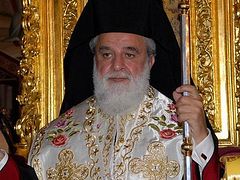
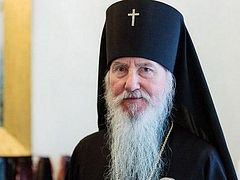
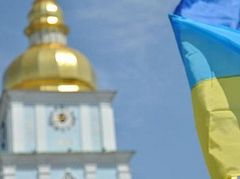
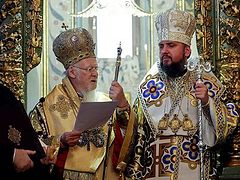
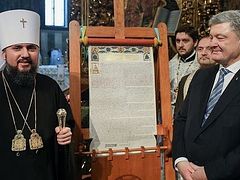
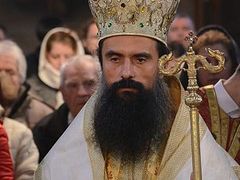
An utter disgrace. I am glad there are Greek
Bishops, priests, and theologians speaking
Against him.
This man must be deposed. He is making a
Mockery of the conciliar tradition with his refusal
To hear the demands of the local
Churches.
The jesuits taught him well. He is as much an
Authoritarian and tyrant as the Latin popes.
I am Greek and I am 100 percent pro Russian
Ecclesiastically and politically.
I pray the church of greece will side with
Russia as Cyprus did.